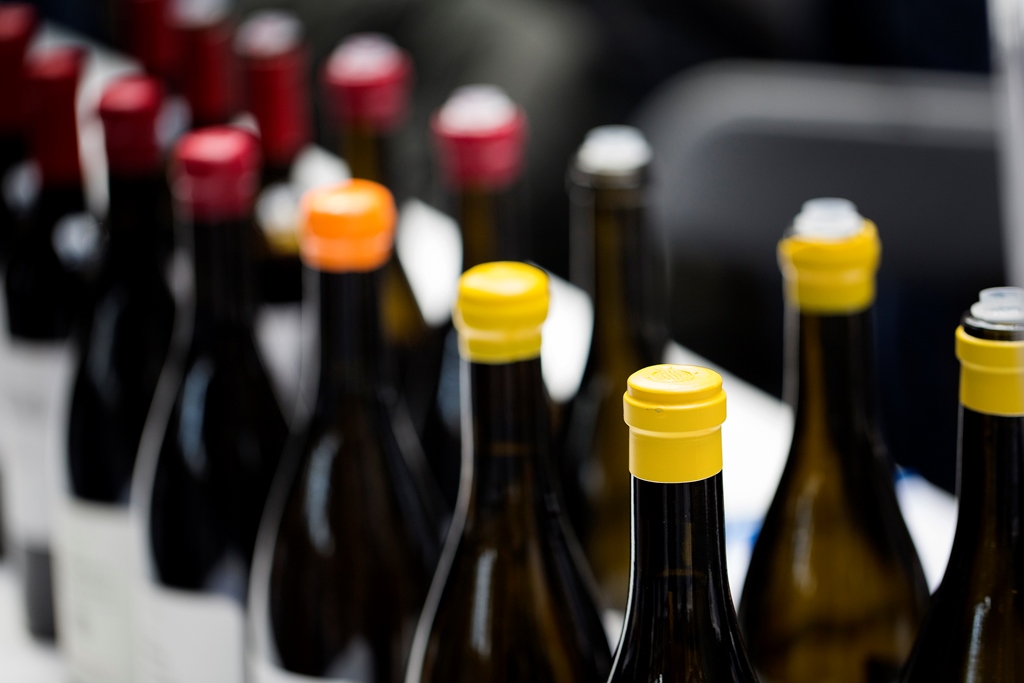
Simon Woolf’s piece on natural wine in Meininger caused another minor kerfuffle in a carafe in the oenosphere.
These articles are always timely in that even though they are written with diligence and fair-handedness, the reactions they subsequently evoke provide an indication about the commentariat’s (lack of) knowledge, understanding and experience of natural wines.
Defenders of natural wine are accused of fundamentalism because one or two occasionally pipe up to admit to liking a certain style of wines. As if personal enjoyment would be motivated by ideological fervour.
The contras often cite opinions as if they were incontrovertible facts, generalising about wines that they have never tasted and having no concrete evidence to back their assertions. To make salient judgements you need really to have visited the vineyards, met and talked to the farmers and vignerons, and also to have to hand the physical data (analyses) of the wines. Critics of natural wine seem to rely on hearsay, or generalise from the experience of a few wines tasted (imagine if everyone did that), but, most of all, appear to be intellectually predisposed to dislike the whole concept of natural wine, wherein they view such wines as inevitably faulty. The fact that a vast spectrum of wines exists, many of which are wonderful, some of which are nail varnish, some of which are highly complex, others simple and fruity, and so on, suggests that every wine ought to be visited and treated on its merits and evaluated accordingly rather than placed in the dualistic natural = good/evil box.

Of course, natural is a relative term – we are speaking about wines that undergo minimal or zero chemical processing or manipulation but are also the complex result of many processes and winemaking choices rather than fixed ideological positions. Occasionally, when one has the opportunity to taste the same wines made with and without the addition of SO2, for example, one sees how even a small addition makes a considerable difference to the way the wine tastes, but this is not to say that one course of action is more correct than the other. You could also argue that the preservation or conservation of a potentially unstable wine is the more natural (certainly rational) course of action, and this pragmatic approach is followed certainly by the vast majority of natural vignerons who will make the appropriate adjustments. But wine is never so simple: I’ve dismissed certain natural wines on first tasting as irredeemable only to have to eat (drink) my words as they have blossomed in the glass. Conversely, I have been initially enchanted by more classic conventional wines before witnessing how they lose their lustre. A more nuanced position would be to get to know the wine, see it evolve, sense whether its energy derives from the pure quality of the juice or whether it presents a glossy façade without the wherewithal to back it up.
There are many reasons why naturally-made wines, and the associated culture, appeals:
The wines themselves are shorn of pretention and winemaking tropes. They have to be made with pretty stunning quality grapes. They express a purity of fruit – transparency is the key. They possess a quality called energy (you recognise it if you taste it). The best examples articulate their terroir. For various reasons they tend to be lower in alcohol, less extractive, less jammy and less oaky. They are fun to drink. They are often challenging. They are living, mutating things. The wine fairs and wine bars are celebrations of a dynamic wine culture and the people who pour the wines in restaurants love what they are doing. Culturally, it is about sharing – loving a wine on Instagram, FB or Twitter gives instant word-of-mouth recognition to the wines. They don’t have to receive the imprimatur of the journalist, the wine writer or the judge. They don’t have to live up to an artificial score or a tasting note. None of this is subversive; it is a natural progression in that we can make our own discoveries, we become active “consumers” rather than sponges – we are free to love or to loathe any wine on its merits. Or, maybe, that is subversive in that hierarchical certainties of taste are being constantly challenged.


Thank you for this.
The comment that knocked me for six was when someone accused the Meininger article of being a promotional piece for natural wines. It seemed as if even mentioning the term in public was tantamount to unbiased worship.
But, to tackle another theme, I do believe there is mild and healthy subversion in the way the natural wine world operates. There is so much wealth and status tied up in the world’s premier division wines, and so much idolatry of these estates still visible in the press (and occasionally the blogosphere, if that is indeed still a thing) that an anti-reaction is much needed.
You’re right, Simon. I have found that even rational discussion causes extraordinary over-reactions. Of course, the fact that people protesteth too much becomes a kind of self-fulfilling prophecy. Controversy rouses the interest of more people.
The subversive thing about natural wine is that if one accepts that the wines might be good or very good, one undermines every current critical and oenological certainty. By implication the heavily lauded premier division wines become so much flimflam. I suspect the people who attack natural wine for being style over substance believe that they are getting their retaliation in first. This is a bit silly because as I say in the piece I like wines that I like and I like them on their merits not because an ideology makes all the wines good per se And I guess the most subversive about the natural wine world is that its drinkers don’t need to told what to think (and what to drink).
While some hostile reactions against natural wine are indeed prejudiced and biased, one cannot deny that there is a part of the natural wine scene that indeed resembles ideology or religion, rather than serious winemaking. I find a large (and increasing) number of natural wines to be extremely vibrant and pure, but the truth is there are many out there that are faulty by even the most extreme standards, and where criticism is dismissed as a lack of understanding. I can appreciate a little bit of brett in reds, for example, but a wine smelling like horse shit I just won’t buy, no matter how great the winemaking philosophy behind it. Whatever the way it’s made, a wine needs to be appealing and interesting…
I pretty well know everyone in the natural wine scene and I see it is as a rainbow coalitions of ideas and viewpoints rather than a coordinated movement. I don’t know anyone who loves all wines that they perceive to be natural – that would be ideological myopia indeed. Besides the wines are so very very different – from zero sulphur cold carbonic to skin contact to classic long elevage, from straight as a dye to quite wild – and everything in between. Of course, there are faulty wines, although faults are common to all wines -not just some natural wines. As for brett – look at the 1980s when no-one was making natural wines – all those Bordeaux and southern Rhones were reeking of it. My point in the article is that a lot of people will claim that they will never drink natural wine, but hold strong opinions about it (as if having an opinion is a priori knowledge). Rather than assessing wines from grower to grower, cuvee to cuvee and vintage to vintage they will dismiss everything as if it is homogenous because it is the idea that is anathema. Two things seem to be true – the quality of winemaking seems to improve every year. This is the result of better farming and also the desire to make wines that are more drinkable. Vignerons don’t work in a vacuum – they exchange ideas, whilst importers and customers are also involved in the conversation. Secondly, customers are becoming more discerning – as new benchmarks of quality are achieved they will gravitate towards those rather than the funkier/edgier styles. But there is room for all and each to his or her taste.